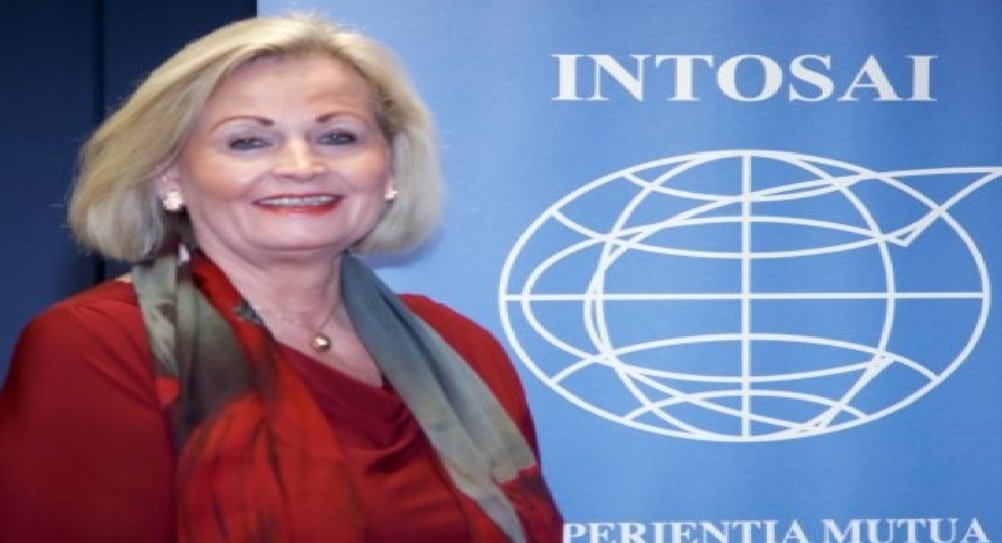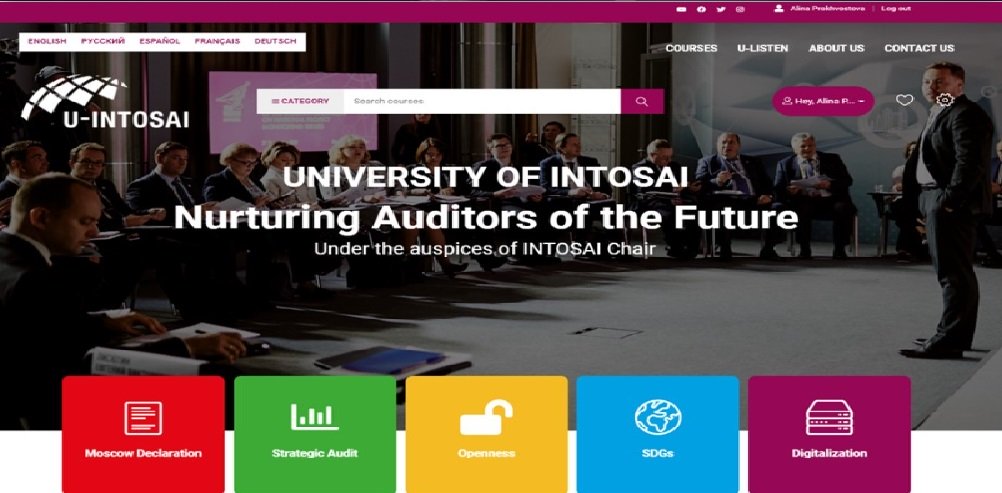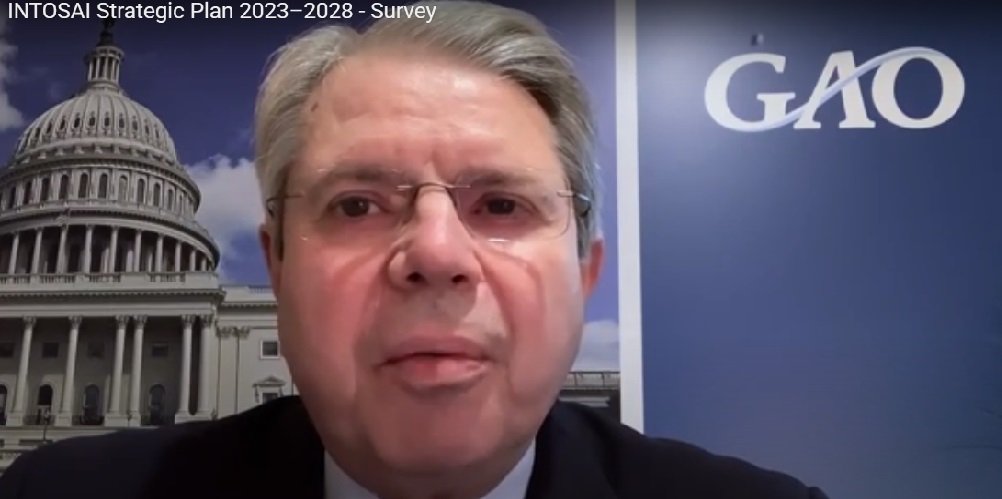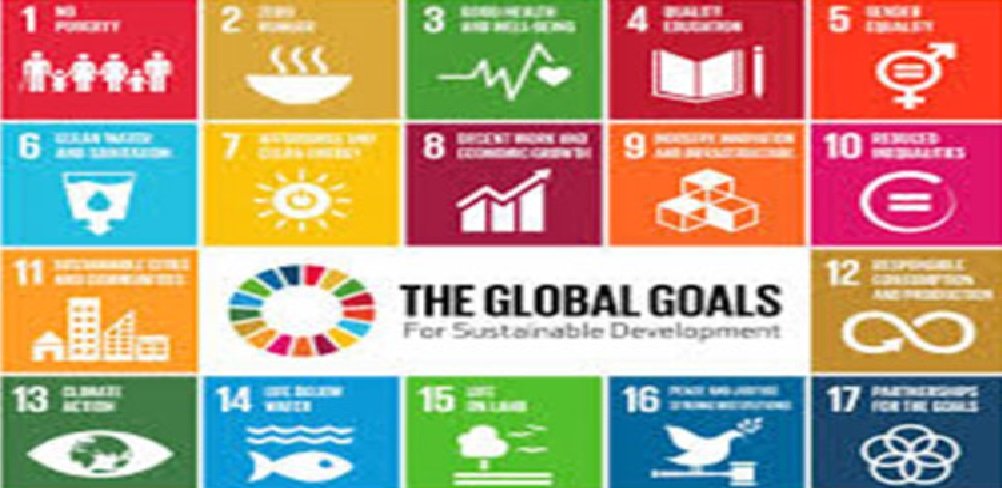The INTOSAI Digital University is an open online educational platform, available for the whole INTOSAI community ..
INTOSAI in brief
My INTOSAI
Monika González-Koss
Director of the INTOSAI General Secretariat
INTOSAI Director of Strategic Planning (2010 – 2016)
It was in November 1953 when 34 Supreme Audit Institutions (SAIs) and the United Nations met in Cuba, Havana, for their first Congress, to create the International Organization of Supreme Audit Institutions (INTOSAI). Among those 34 founding participants were representatives from South America, Europe, Africa as well as – curiously enough – the Vatican State.
At present INTOSAI counts 200 members – 94 Full Members, 5 Associate Members and 1 Affiliate Member, most of them members of one of the seven Regional Organizations, which assist the member SAIs on a regional basis.
In line with its motto “Mutual experience benefits all”, INTOSAI acts as a permanent, autonomous, independent and non-political professional organization of the worldwide institutions of external government audit for the members states of the United Nations or of its specialized agencies and represents them as their recognized international umbrella organization.
Through the preparation of professional standards, institutional capacity building as well as knowledge sharing and knowledge services, INTOSAI provides a vital contribution for promoting good governance, enhancing transparency and accountability and fighting corruption, thereby also contributing to maintaining credibility and strengthening confidence in public governance, thus making a beneficial difference for the lives of the citizens of its member states.
INTOSAI and the United Nations
INTOSAI’s recognition has grown steadily in the last 65 years owing to its diverse activities, and the UN General Assembly Resolutions A/66/209 of December 2011 and A/69/228 of December 2014 have certainly marked the highlight of this recognition to date.
In these resolutions, the UN General Assembly took note with appreciation of the work of INTOSAI in promoting greater efficiency, accountability, effectiveness, transparency and the efficient and effective receipt and use of public resources for the benefit of citizens. At the same time, the UN General Assembly also recognized the principles of independence laid down in the INTOSAI Declarations of Lima and Mexico and encouraged the member states to apply the principles specified in those declarations in compliance with their national institutional structure.
For nearly 50 years INTOSAI has closely cooperated with the United Nations. Since 1998 INTOSAI has enjoyed 1998 Special Consultative Status to the United Nations.
Since 1971 the INTOSAI General Secretariat has regularly organized high-ranking capacity building symposia, the so-called UN/INTOSAI Symposia, with the United Nations Department for Economic and Social Affairs (UNDESA) in Vienna, Austria.
INTOSAI already held 24 UN/INTOSAI Symposia on a large number of themes of imminent interest for SAIs, such as environmental auditing, value and benefits of SAIs, sustainable development and SAIs’ contributions, IT audits, accountability, audit and advisory activities and citizens engagement, E-Government, SAI independence or audit of health care.
The Symposium of 2017 was dedicated to the theme “Digitalization, open data and data mining: relevance and implications for SAIs’ audit work and for enhancing their contributions to the follow-up and review of the SDGs”, leading us directly to one of the present main concerns of INTOSAI: the important role of SAIs in the implementation of the SDGs.
For this aim, INTOSAI has launched numerous initiatives to support SAIs in making an essential contribution to the success of the UN 2030 Agenda and the SDGs.
The role of SAIs with regard to reviewing and monitoring the implementation of the SDGs was, for example, one of the two focal themes taking center stage at INCOSAI XXII in Abu Dhabi in 2016. The Congress confirmed the avid interest of SAIs in carrying out audits and reviews with regard to the SDGs via the following four approaches:
– Assessing the preparedness of national governments to implement the SDGs,
– Undertaking performance audits in the context of the SDGs,
– Contributing to the implementation of SDG 16, which envisages effective, accountable and transparent institutions, and
– Possibilities for SAIs to act as models of transparency and accountability in their own operations.
Since INCOSAI XXII, already more than 100 member SAIs have shown concrete interest in carrying out SDG-related audits and quite a number are realizing those audits at present.
INTOSAI is therefore intensively concerning itself with the implementation of the SDGs from the viewpoint of auditors. In doing so, it also takes into account the need for a comprehensive audit approach and the inclusion of external stakeholders in audits. This also includes providing a stimulus for the implementation of the SDGs through audits or the application of indicators. Coordinated audits are also valuable opportunities for the mutual exchange of knowledge and experience.
One of the highlights in this context will be once again the INTOSAI participation in the UN High Level Political Forum in New York in July 2018 to present the important role and work of SAIs in the monitoring of and thus the contribution to the global implementation of the SDGs.
INTOSAI as successful organization
There is a number of other milestones that illustrate the success story of INTOSAI as an independent international platform, which serves the exchange of knowledge and experience and acts as a worldwide voice of Supreme Audit Institutions in the international community.
These milestones encompass the development of – until to date – three Strategic Plans featuring four strategic goals – Professional Standards, Capacity Development, Knowledge Sharing and Knowledge Services, and Maximize the Value of INTOSAI as an International Organization – towards which all activities of the Goal Committees, Sub-Committees, Working Groups, Task Forces and Project Groups are geared, as well as the preparation of a Communication Strategy that is to safeguard a consistent level of information and development in the INTOSAI community in the spirit of equality and inclusiveness.
INTOSAI and all its organs, namely the INTOSAI International Congress (INCOSAI), the Governing Board, the General Secretariat, the Goal Committees, the Supervisory Committee on Emerging Issues, the International Journal of Government Auditing, the INTOSAI Development Initiative and the seven Regional Organizations have committed themselves to an active and effective implementation of the organization’s strategic goals and its five cross-cutting priorities – SAI independence, SAI follow-up and review of the SDGs, development and coordination among standard-setting, capacity development, and knowledge sharing, creating an agile and strategic INTOSAI, leveraging the Regional Organizations – established to enhance accountability, transparency and good governance and to safeguard the credibility of SAIs for the benefit of the citizens around the globe.
INTOSAI strives and has always strived to respond to the needs and concerns of each member, to safeguard and promote a free and comprehensive flow of information and experience as well as to bundle the global knowledge and know-how gained in practical external audit experience. This focus on a practical and member-oriented way of working is richly depicted in the themes of the 22 international Congresses held to date and in the groundbreaking decisions that were taken at those INCOSAIs.
Related Posts
The Task Force is committed to a strategic planning process that is open and inclusive and fully considers all points of view.
The Sustainable Development Goals (SDGs) are the centerpiece of that agenda and provide an ...




